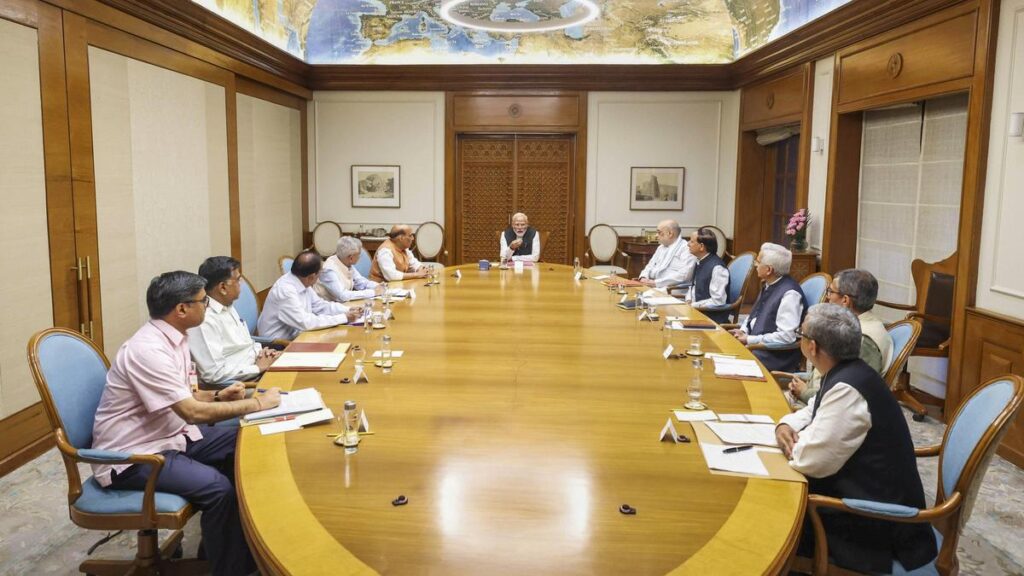Pahalgam Attack Fallout: India Suspends Indus Water Treaty, Shuts Attari Border Crossing

In a strong response to the recent terrorist strike in Pahalgam, India has taken a series of bold measures, including suspending the Indus Water Treaty and shutting down the Attari Integrated Check Post. The decisions were announced by Foreign Secretary Vikram Misri following a high-level meeting of the Cabinet Committee on Security (CCS), chaired by Prime Minister Narendra Modi at his official residence on Wednesday, April 23, 2025.
The CCS convened to assess the security landscape and formulate an assertive response to the attack, which occurred just a day earlier. Following the review, Foreign Secretary Misri outlined five significant measures to be implemented with immediate effect:
- Indus Water Treaty Suspended
The 1960 treaty governing water sharing between India and Pakistan will be held in abeyance. India has linked the resumption of the treaty to Pakistan taking verifiable and irreversible steps against cross-border terrorism. - Closure of Attari Check Post
The Integrated Check Post at Attari is being shut down immediately. Pakistani nationals who have legally entered India via this post may return through the same route by May 1, 2025. - Cancellation of SAARC Visa Exemptions for Pakistanis
Pakistani nationals will no longer be allowed entry under the SAARC Visa Exemption Scheme. Existing visas issued under this arrangement are deemed void, and individuals currently in India under these visas have 48 hours to exit. - Military Diplomats Declared Persona Non Grata
India has declared Pakistan’s military, naval, and air attachés in New Delhi as persona non grata. They, along with five support staff, must leave the country within a week. Similarly, India will withdraw its corresponding defense personnel from Islamabad. - Reduction in Diplomatic Staff Strength
The total strength of both High Commissions will be scaled down to 30 personnel by May 1, 2025, from the current 55.
Mr. Misri emphasized that the Indian government is unwavering in its commitment to holding the perpetrators and sponsors of the attack accountable. He referenced the recent extradition of Tahawwur Rana as an example of India’s resolve to bring terror actors to justice.
The CCS meeting, which lasted over two-and-a-half hours, was attended by key figures including Home Minister Amit Shah, Defence Minister Rajnath Singh, External Affairs Minister S. Jaishankar, NSA Ajit Doval, and senior officials. Finance Minister Nirmala Sitharaman was notably absent as she was en route back from the U.S., having cut her trip short in light of the attack.
PM Modi returned early from Saudi Arabia to personally oversee the security response. Upon landing, he held an urgent briefing at the airport with Mr. Doval, Mr. Jaishankar, and Mr. Misri. Later, Home Minister Amit Shah visited the attack site in Baisaran and met with the injured at a nearby hospital.
“In the wake of the terrorist attack in Pahalgam, chaired a meeting of the CCS at 7, Lok Kalyan Marg,” Prime Minister Modi stated on his X handle.
These developments mark a significant escalation in India’s diplomatic and strategic stance, signaling a zero-tolerance approach toward terrorism and its enablers.


